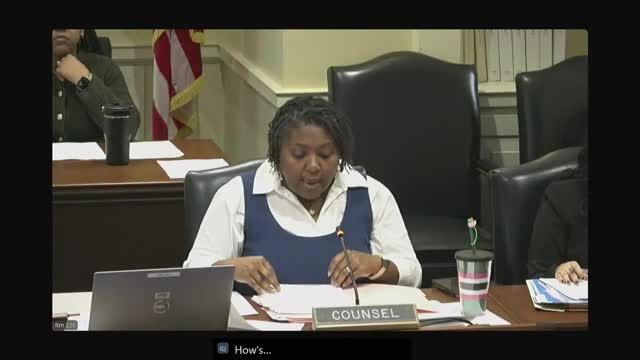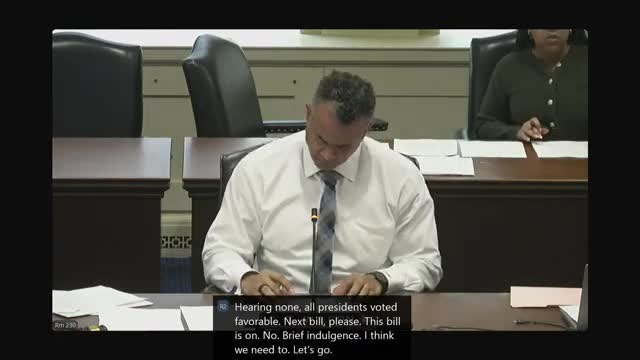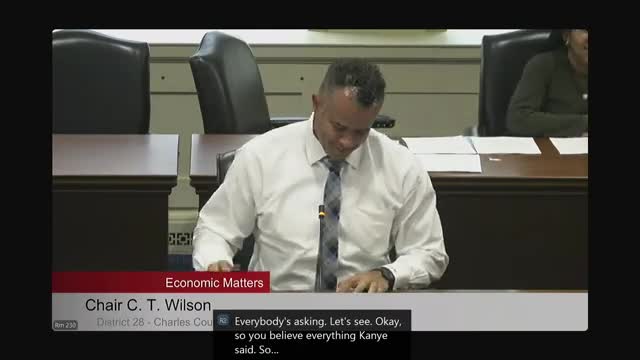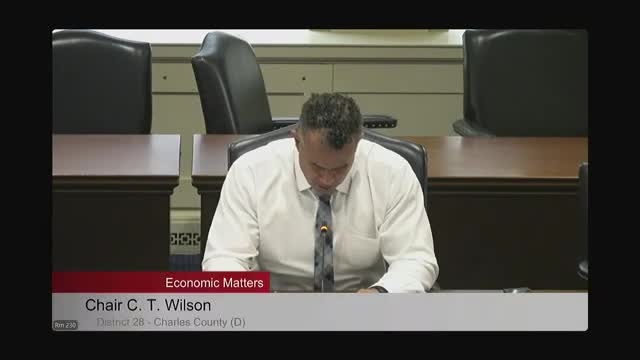Article not found
This article is no longer available. But don't worry—we've gathered other articles that discuss the same topic.

Committee debates domestic-wire protections to shield seniors from fraud; bill held for further work

Committee holds right-to-repair bill for powered wheelchairs after members raise cost and consumer-protection questions

Committee advances Maryland Limited Worker Cooperative Association Act with insurance-coverage amendment

